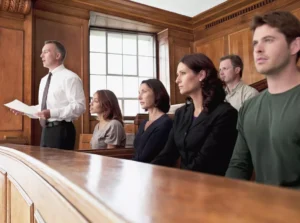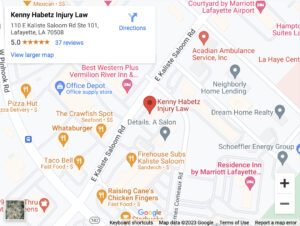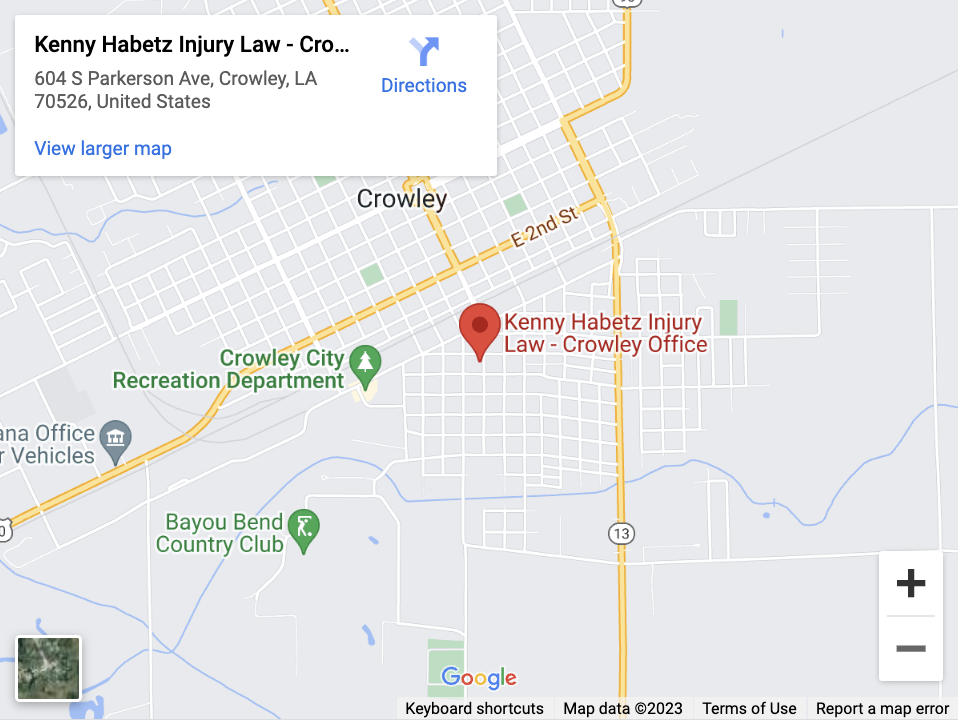
Depositions are a tool used during a lawsuit to gather information that might be used as evidence. A deposition is oral testimony given out of court. At a deposition, an attorney questions a party or witness under oath and a court reporter will record their answers. The opposing attorney will have an opportunity to cross-examine them.
If you’re subpoenaed to be deposed in Lafayette, LA, you must comply. The party seeking your deposition can ask the court to hold you in contempt if you don’t.
What To Expect at a Deposition in a Personal Injury Case
A deposition does not take place in court. Typically, depositions are taken in an attorney’s or court reporter’s office. Usually, both parties and their attorneys are present at a deposition.
Before you are questioned, the court reporter will place you under oath. This means you promise to tell the truth. The court reporter will also explain that you must answer audibly, such as by saying “yes” or “no.” You cannot nod or respond with other gestures during a deposition.
Your attorney may make objections during the deposition. However, you must generally answer every question asked during a deposition unless the answer is confidential. Your attorney will let you know if you don’t have to answer.
Who Attends a Deposition?
Again, depositions often involve the parties to the lawsuit. Other participants might include:
- Eyewitnesses
- Expert witnesses
- People with relevant information
Parties to the lawsuit will have their attorneys with them. Witnesses may also consult with an attorney before the deposition or have an attorney represent them.
Common Deposition Topics in Personal Injury Cases
You won’t know what questions you’ll be asked in a deposition in advance, but here are common topics attorneys ask about in personal injury cases:
- Details of how the accident or injury occurred
- Details of the witness’s background, education, career, and home life
- The impact of the injury on the victim’s life
- Injuries and damages caused by the injury
- The witness’s health before the accident
- How you prepared for the deposition
It’s important to answer the deposition questions truthfully. If you don’t, it could be used to make you look dishonest or unreliable. If you don’t know the answer to a question, say you don’t know or don’t remember.
Tips for Answering Deposition Questions
You may feel nervous before being deposed, especially if you haven’t been before. Here are some tips for how to handle questioning at a deposition:
- Be honest. You are under oath during a deposition and must answer questions truthfully. You could be charged with perjury if you answer dishonestly.
- Stay calm. Take a deep breath and stay calm during your deposition. The opposing attorney may try to surprise or provoke you into responding angrily or defensively.
- Take breaks. You can ask for a break at any time, if needed, during the deposition. If you feel overwhelmed or tired, ask to take a short break.
- Stick to the question asked. Keep your answers concise and only respond to the question asked. Some people ramble when nervous, but this can lead to giving the opposition party harmful information.
- Don’t make up information. If you don’t know the answer to a question, don’t guess. Say you don’t know the answer or don’t remember.
- Ask for clarification. If you don’t understand a question, say so. Ask the attorney to rephrase the question or explain what they mean.
- Ask to review evidence. If you’re asked about a specific document, photo, or other evidence, ask to review it before you answer.
Your attorney will make sure that you’re treated fairly and will object to improper questions.
What Rules Govern Depositions?
The rules that govern your deposition will depend on if the case is in federal or state court. Rule 30 of the Federal Rules of Civil Procedure applies to depositions in federal cases.
In Louisiana, personal injury cases are governed by state law, including the Louisiana Rules of Civil Procedure, Louisiana Rules of Evidence, and the local court’s rules. These rules will dictate how depositions can be scheduled and noticed, who can attend, and other details.
An experienced Lafayette personal injury lawyer will identify the controlling set of rules in your case.
Contact a Lafayette Personal Injury Lawyer for a Free Consultation
If you were injured in Lafayette by someone else’s negligent actions, you could recover compensation through a personal injury claim. If your case proceeds to the filing of a lawsuit, depositions will probably be required to gather evidence.
Our experienced Lafayette personal injury lawyer can discuss your case and help you handle any depositions. Contact our office at (337) 222-3233 to schedule a free consultation.


